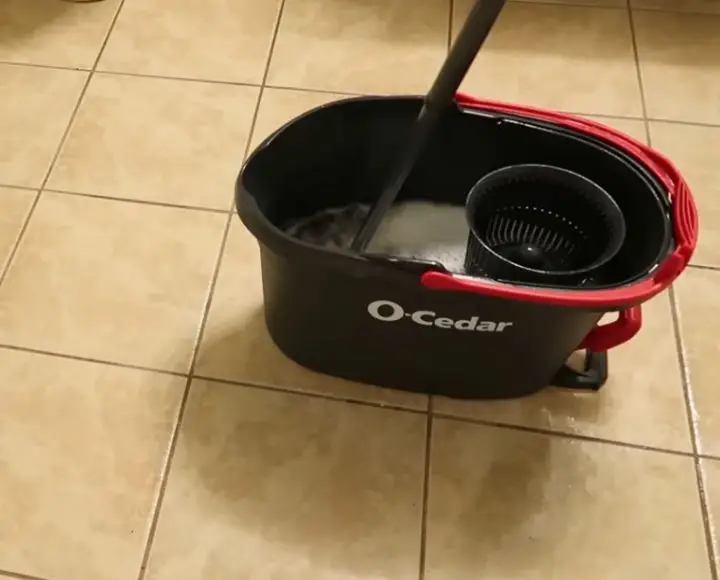Mopping is a safe and efficient way to clean and remove dirt from floors. The mop water you remain with after mopping may have grime, bacteria, and chemicals from cleaning detergents. It is essential you be cautious of how you dispose of the dirty water.
What is the correct way to dump dirty mop water after cleaning?
Dispose of mop water using a safe method that is safe for people, animals, and nature. The cautious handling of contaminated water will prevent health hazards and protect natural resources.
Highlighted below are places where to dump dirty mop water safely after cleaning:
Why Should You Dispose of Mop Water Properly?
It is prudent to handle dirty water carefully after mopping for the following reasons;
To reduce harmful health effects
Dirty floors are infested with germs, bacteria, and dirt. Once you mop the dirty floor with detergents, the mop water turns into a concoction of bacteria and chemicals that are harmful to the environment.
Careful disposal of dirty water will prevent any adverse health effects on people and living organisms.
It is not safe for the environment
Mop water is a collection of bacteria, dirt, and chemicals from cleaning aids. Handling the dirty water carefully will avoid infections from bacteria in the water. It will prevent the contamination of vegetation and natural resources such as rivers.
The Best Way to Dispose of Mop Water
Check the local regulation
Every municipality has disposal regulations that are safe and environmental-friendly. Find out the requirements of your county and adhere to them.
Wear protective gear
Mopping will expose you to detergents, bacteria, and grime. To avoid splashes that may be harmful, have on protective wear like gloves and a mask. The safety wear will protect against gross water and hazardous cleaning chemicals.
How to Dispose of Mop Water
Most people normally empty mop water into service sinks and toilets though it is not good. Mop water has hair clumps, dander, and dirt particles that may clog the plumbing systems.
Below are safe areas where to dump dirty mop water to protect people and the environment;
Dispose of Down the Drain
Dumping mop water into the drain is a safe and convenient way to dispose of the dirty water. The drainage system is a feeder to an underground sewer that treats wastewater professionally.
Before pouring mop water into the drainage, fish out any hair clumps or fur dander. The precaution will prevent clogging. Small particles and debris may, however, not block the plumbing pipes.
Pour Down the Open Sewer
A sewer is a safe place to dump wastewater. The sanitary sewer is a broader system that connects many drainage systems. You can dispose of mop water into it safely.
Pour it Out on Wild Bushes
If you have a bushy area around your home, use mop water to kill it. You will be disposing of dirty water and getting rid of your compound’s weeds.
Regardless, you must be cautious not to contaminate other areas, like water resources. Be careful if you have pets as the contaminated weeds may poison them. Some animals, such as cats, chew weeds to sort out digestive issues.
Put it Inside a Bag
You may dispose of mop water in a dust bin using an empty container or plastic bag. Disposing of water using containers and plastic bags may be cumbersome. Use the disposal method if it is the only means you have to dump the wastewater.
Ensure the containers or plastic bags are well-sealed to avoid leakage. In some areas, you can contract disposal services to dump trash and wastewater safely.
Can You Dispose of Mop Water to the Toilet or Sink?
Do not dump floor wash water into your sink or toilet. Pouring mop water into your house drainage may harm the environment. It may also ruin or clog your drainage pipes.
What You Should Not Do with Mop Water
Below are ways you may use to dispose of mop water to prevent any exposure to pathogens or harming natural resources;
Do not leave mop water for a long time
Leaving mop water in the bucket may cause further contamination by bacteria and germs. It may harm people or nature if accidentally spilled.
Do not pour into your house drainage
Disposing of mop water into bathtubs, sinks, or toilets may clog the drainage pipes. The piping is not efficient to dispose of water with debris, and clumps of dander and hair. The water may also pollute the environment.
Do not pour it into the garden or pond
Do not dispose of mop water in a garden or fish pond. Avoid dumping mop water on any environment that is a habitat of living organisms. The grimy water may harm the fish or contaminate the garden. In extreme cases, the water may poison and kill them.
Don’t reuse it
Reusing mop water to wash floors is a health hazard and gross. The germs may have a field day to multiply and thrive in mop water stored for recycling.
Why Wear Protective Masks and Gloves When Cleaning?
To protect yourself from contamination. Mop water has grime and cleaning chemicals. If you get a splash of dirty water, it may harm your skin, face or eyes. Breathing in the chemical-laced and germs-infested water may affect your respiratory system.
What do you do With a Mop After Mopping?
First, detach the mophead from the handle to clean it efficiently. Wash the mop head thoroughly immediately after use. You may then use warm and clean water to wash it. After rinsing, store where the excess water can drain.
Is it Safe to Dispose of Mop Water in the Kitchen Sink?
It is not safe to dump mop water into a kitchen sink. Mop water may have hair clumps, dust, and particles that may clog the drainage. It is also gross to pour mop water in a sink used to clean foodstuff and kitchen items.
